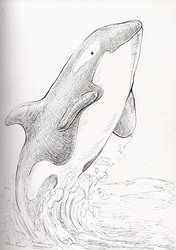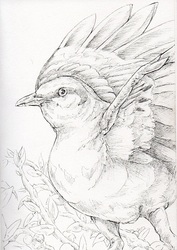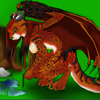Sign In
CloseTotem of the day is Echidna! If there has been anything you've been interested in, now is the time to dig in and learn all you can. You may be closer to other realms in the coming time so be open to any messages or communication you may be receiving. If you are in a place unfamiliar to you, be sure to stay aware of whats going on and be cautious in your actions. This could include keeping others from entering your personal space. However, don't cut yourself off from others in the process. The Echidna spirit guide is known for it's connection to stability, knowledge, sensitivity, investigation, and appreciating the little things. Echidna can come as a reminder to always be open to learning. Allow yourself to take in knowledge and to find answers. At times, this can also be a sign to dig in and let yourself be stubborn in order to protect yourself. Doing so may aid in becoming more stable. Grounding will be important for you in the coming time. Echidna can help us face our challenges and to find success while knowing that it takes hard work to achieve our goals. However, don't let yourself get pulled down. Explore your interests and reach your goals with a lighthearted passion. People who connect with Echidna are sensitive and inquisitive types who are often able to communicate with other realms with ease. Being curious, they will hunt for knowledge consistently and without end. They tend to have a creative and unusual home while being able to feel comfortable in other areas as well.
Echidna, Tachyglossus Aculeatus, are carnivorous mammals that can live between 15 and 40 years in the wild. Echidna are one of the oldest mammals in the world, having evolved between 20 and 50 million years ago from an aquatic ancestor. Echidnas now can only be found in Australia and New Guinea. Also known as Spiny Anteaters, these creatures are not related to anteaters at all, but are one of only four species within the Monotremata order. The Monotremata order are the only living mammals that lay eggs and include the Platypus and the four species of Echidna; the Short-beaked Echidna, Eastern long-beaked Echidna, Western long-beaked Echidna, and the Sir David's long-beaked Echidna. Contrary to their name, these animals do not possess beaks. Instead, they have fleshy noses that are either long or short depending on species. On average, they will grow to up to 30 inches long and weigh between 6 and 22 lbs. These animals are covered in hollow, barbless quills that can grow up to 2 inches long. Echidnas prefer a range of habitats from deserts in the interior of Australia to meadows or coastal forests. Although solitary, they do not mind sharing their territory with other Echidna are diurnal creatures, however, they will change to being nocturnal during the hotter months in order to avoid the heat. In the winter months, they will hibernate within their burrows to avoid the cold. The diet of an Echidna consists of only ants, termites, and other small invertebrates such as beetle larvae. Their elongated snouts allow them to sniff and shift through dirt to find their prey. They possess strong digging claws to tear through logs or dirt and scoop out the insects with a tongue that can reach up to 7 inches long. They do not have teeth and must swallow their prey whole. Similarly to Platypus males, Echidna males also possess spurs on their back legs. While the Platypus uses their spurs for a venomous attack or defense, Echidna male spurs actually produce a milky liquid during breeding season thought to act as communication through scent. Breeding season occurs between July and August. Echidnas have highly specialized and unique reproduction. At times, mating can occur when the female is hibernating. Females will give birth to a singular egg at a time which is transferred to a pouch on her stomach which incubates the egg for 7 to 10 days. After hatching, the baby Echidna, called a puggle, weighs only half a gram and less than half an inch long. It will remain in it's mother's pouch for up to 8 weeks while it's spines harden. They will continue to nurse for up to 7 months of age.
Submission Information
- Views:
- 384
- Comments:
- 0
- Favorites:
- 0
- Rating:
- General
- Category:
- Visual / Traditional




